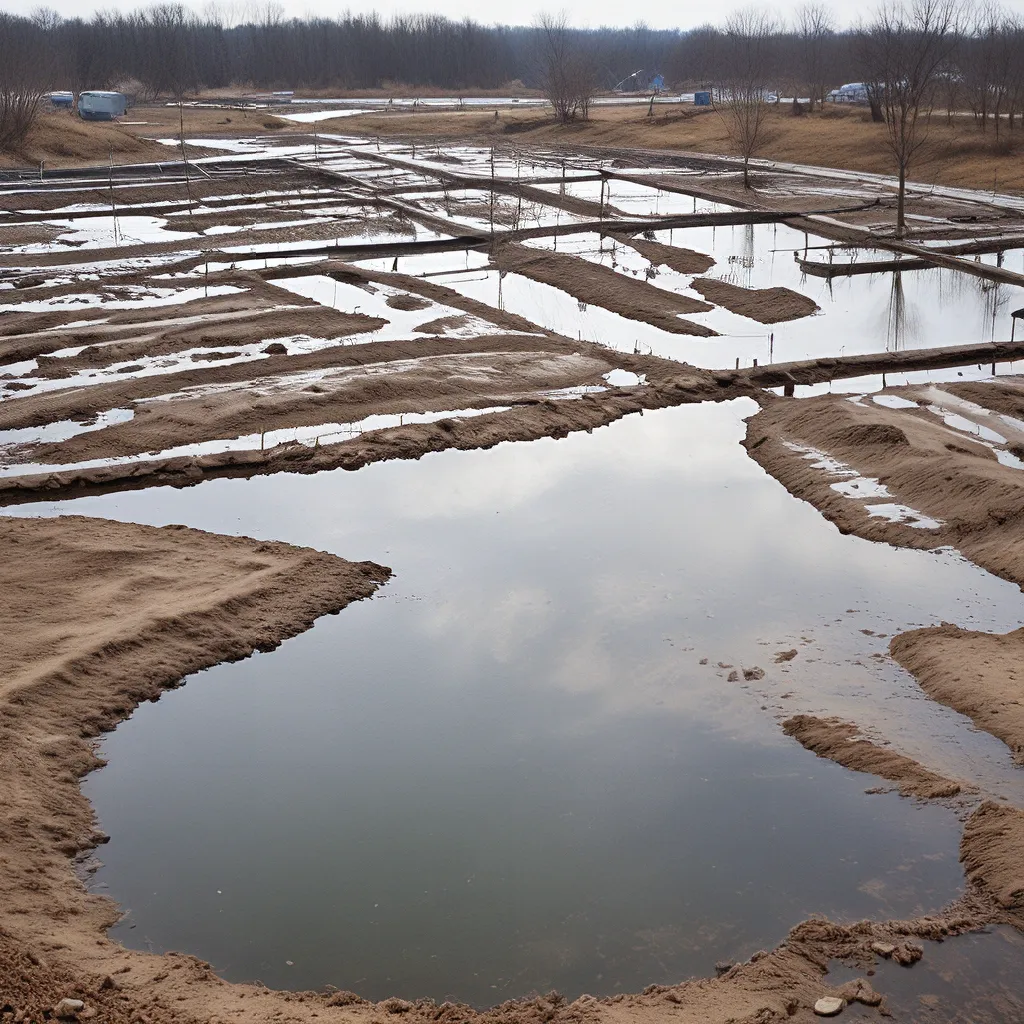
In the ever-evolving world of public health, we’re constantly searching for innovative ways to stay one step ahead. And let me tell you, wastewater-based epidemiology might just be the game-changer we’ve been waiting for. It’s a fascinating field that’s capturing the attention of scientists, health officials, and curious minds like yours and mine.
The Poop Detector
Now, I know what you’re thinking – “Poop? Really?” But hear me out, my friend. This isn’t your average sewage situation. Wastewater-based epidemiology is all about using the stuff that flows through our pipes to gather valuable insights into the health and well-being of our communities.
Think about it this way: our bodies are constantly shedding bits and pieces of themselves, and a lot of that ends up in our wastewater. By analyzing these, we can get a pretty darn good idea of what’s going on inside the people who flushed it all down the drain. It’s like reading the tea leaves of public health, but with a whole lot less guesswork.
The Science Behind the Sewage
So, how exactly does this wastewater-based epidemiology thing work? Well, it’s a complex process, but I’ll try to break it down for you in a way that even a non-scientist like me can understand.
The basic idea is that when we ingest or come in contact with certain substances, whether it’s a virus, a drug, or even a metabolite, those things end up in our wastewater. By collecting and analyzing samples from sewage treatment plants, researchers can detect the presence and concentrations of these substances. And from there, they can start to piece together all sorts of valuable information.
For example, wastewater-based epidemiology has been used to monitor the spread of COVID-19 outbreaks, track the use of illicit drugs, and even uncover the prevalence of certain chronic health conditions. It’s like a little window into the hidden world of our collective health.
The Poop Detectives
Now, you might be wondering, “Who are the brains behind this whole sewage-sniffing operation?” Well, my friend, it takes a pretty impressive team of scientists, public health experts, and data analysts to make this wastewater-based epidemiology thing work.
These poop detectives are constantly on the lookout for new and innovative ways to use wastewater data to improve public health. They’re sifting through mountains of data, running complex analyses, and collaborating with experts from all sorts of fields to uncover the secrets hidden in our sewage.
And let me tell you, they’re not just sitting in a lab somewhere – these wastewater-based epidemiology pioneers are out there in the field, getting their hands dirty (quite literally) to collect and process those precious wastewater samples. They’re the unsung heroes of public health, if you ask me.
The Challenges and Opportunities
Of course, as with any cutting-edge field, wastewater-based epidemiology isn’t without its fair share of challenges. For one, data privacy is a big concern – we have to be really careful about how we handle and protect the sensitive information we gather from wastewater.
And then there’s the whole issue of interpreting the data. As complex as wastewater analysis can be, it’s not always a straightforward process to draw conclusions from the information we collect. There are all sorts of factors to consider, like population size, seasonal variations, and potential biases in the data.
But you know what they say – where there’s a challenge, there’s also an opportunity. And that’s exactly what’s happening in the world of wastewater-based epidemiology. As we overcome these obstacles, we’re unlocking a whole new realm of possibilities when it comes to protecting and improving public health.
Just imagine the potential – we could use wastewater data to identify emerging health threats before they even hit the radar, monitor the effectiveness of public health interventions, and even get a pulse on the overall well-being of our communities. It’s like having a secret surveillance network, but one that’s actually working for the greater good.
The Future of Poop Surveillance
So, where do we go from here? Well, my friends, the future of wastewater-based epidemiology is looking bright. As the field continues to evolve and grow, we’re likely to see even more innovative applications and cutting-edge technologies coming into play.
Maybe we’ll see wastewater-based epidemiology integrated into our wastewater treatment services, providing real-time data that can inform public health decisions. Or perhaps we’ll witness the development of sophisticated sensors and analytical tools that can give us an even deeper, more nuanced understanding of what’s flowing through our pipes.
The possibilities are endless, and I, for one, can’t wait to see what the future holds. Because when it comes to public health, I believe we should leave no stone unturned – or no toilet flushed, for that matter. So let’s embrace the power of wastewater-based epidemiology and use it to build a healthier, safer world for all.